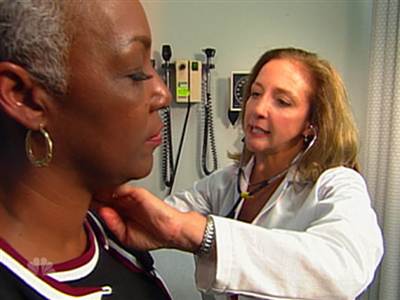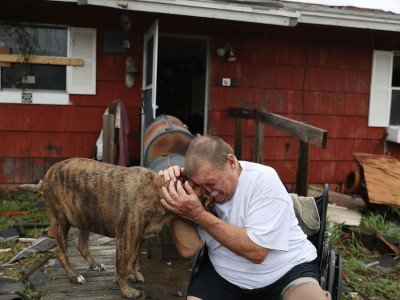Coronary heart disease (CHD) is a narrowing of the small blood vessels that supply blood and oxygen to the heart. CHD is also called coronary artery disease.
Causes and Risk Factors
Coronary heart disease (CHD) is the leading cause of death in the United States for men and women. Coronary heart disease is caused by the buildup of plaque in the arteries to your heart.
* Fatty material and other substances form a plaque build-up on the walls of your coronary arteries. The coronary arteries bring blood and oxygen to your heart.
* This buildup causes the arteries to get narrow.
* As a result, blood flow to the heart can slow down or stop.
Many things increase your risk for heart disease:
*
Diabetes is a strong risk factor for heart disease.
*
High blood pressure increases your risks of heart disease and heart failure.
*
Extra cholesterol in your blood builds up inside the walls of your heart’s arteries (blood vessels).
*
Smokers have a much higher risk of heart disease.
*
Chronic kidney disease can increase your risk.
*
People with narrowed arteries in another part of the body (examples are stroke and poor blood flow to the legs) are more likely to have heart disease.
*
Substance abuse (such as cocaine)
*
Being overweight
*
Not getting enough exercise, and feeling depressed or having excess stress are other risk factors.
Symptoms
Symptoms may be very noticeable, but sometimes you can have the disease and not have any symptoms.
Chest pain or discomfort (angina) is the most common symptom. You feel this pain when the heart is not getting enough blood or oxygen. How bad the pain is varies from person to person.
*
It may feel heavy or like someone is squeezing your heart. You feel it under your breast bone (sternum), but also in your neck, arms, stomach, or upper back.
*
The pain usually occurs with activity or emotion, and goes away with rest or a medicine called nitroglycerin.
*
Other symptoms include shortness of breath and fatigue with activity (exertion).
Women, elderly people, and people with diabetes are more likely to have symptoms other than chest pain, such as:
*
Fatigue
*
Shortness of breath
*
Weakness
See: Heart failure for symptoms of heart failure
Signs and tests
Many tests help diagnose CHD. Usually, your doctor will order more than one test before making a diagnosis.
Tests may include:
* Coronary angiography/arteriography — an invasive test that evaluates the heart arteries under x-ray
* CT angiography — a noninvasive way to perform coronary angiography
* Echocardiogram
* Electrocardiogram (ECG)
* Electron-beam computed tomography (EBCT) to look for calcium in the lining of the arteries — the more calcium, the higher your chance for CHD
* Exercise stress test
* Heart CT scan
* Magnetic resonance angiography
* Nuclear stress test
Treatment
You may be asked to take one or more medicines to treat blood pressure, diabetes, or high cholesterol levels. Follow your doctor’s directions closely to help prevent coronary artery disease from getting worse.
Goals for treating these conditions in people who have coronary artery disease:
* Blood pressure less than or equal to 140/90 (even lower for some patients with diabetes, kidney disease, or heart failure).
* Glycosylated hemoglobin (HbA1c) levels less than or equal to 7% for people with diabetes.
* LDL cholesterol level less than or equal to 100 mg/dL (even lower for some patients).
Treatment depends on your symptoms and how severe the disease is. Your doctor may give you one or more medicines to treat CHD, including:
* ACE inhibitors to lower blood pressure and protect your heart and kidneys
* Aspirin, with or without clopidogrel (Plavix) or prasugrel (Effient) to help prevent blood clots from forming in your arteries
* Beta-blockers to lower heart rate, blood pressure, and oxygen use by the heart
* Calcium channel blockers to relax arteries, lower blood pressure, and reduce strain on the heart
* Diuretics (“water pills”) to lower blood pressure and treat heart failure
* Nitrates (such as nitroglycerin) to stop chest pain and improve blood flow to the heart
* Statins to lower cholesterol
NEVER ABRUPTLY STOP TAKING ANY OF THESE DRUGS. Always talk to your doctor first. Stopping these drugs suddenly can make your angina worse or cause a heart attack.
Your doctor may refer you to a cardiac rehabilitation program to help improve your heart’s fitness.
Procedures and surgeries used to treat CHD include:
* Angioplasty and stent placement, called percutaneous coronary interventions (PCIs)
* Coronary artery bypass surgery
* Minimally invasive heart surgery
LIVE A HEALTHY LIFESTYLE
Some of the risks for heart disease that you CAN change are:
* Do not smoke or use tobacco.
* Get plenty of exercise, at least 30 minutes a day on at least 5 days a week (talk to your doctor first).
* Maintain a healthy weight. Men and women should aim for a body mass index (BMI) between 18.5 and 24.9.
* Get checked and treated for depression.
* Women who are at high risk for heart disease should take omega-3 fatty acid supplements.
* If you drink alcohol, limit yourself to no more than one drink per day for women, and no more than two drinks per day for men.
Nutrition is important to your heart health, and it will help control some of your heart disease risk factors. See also: Heart disease and diet
* Choose a diet rich in fruits, vegetables, and whole grains.
* Choose lean proteins, such as chicken, fish, beans, and legumes.
* Eat low-fat dairy products, such as 1% milk and low-fat yogurt.
* Avoid sodium (salt) and fats found in fried foods, processed foods, and baked goods.
* Eat fewer animal products that contain cheese, cream, or eggs.
* Read labels, and stay away from “saturated fat” and anything that contains “partially-hydrogenated” or “hydrogenated” fats. These products are usually loaded with unhealthy fats.
For more information visit the American Heart Association.
Source: Pub Med Health





